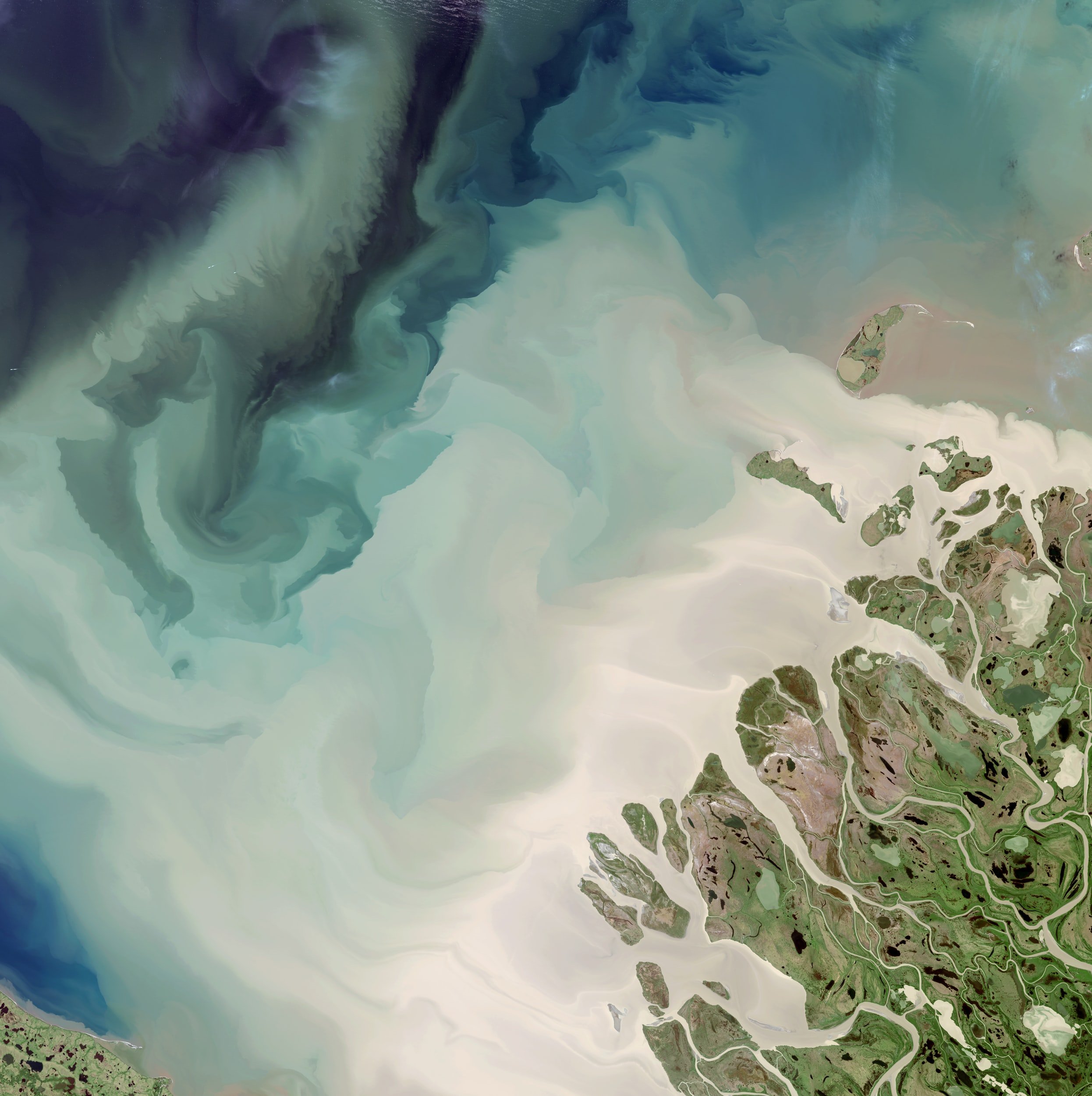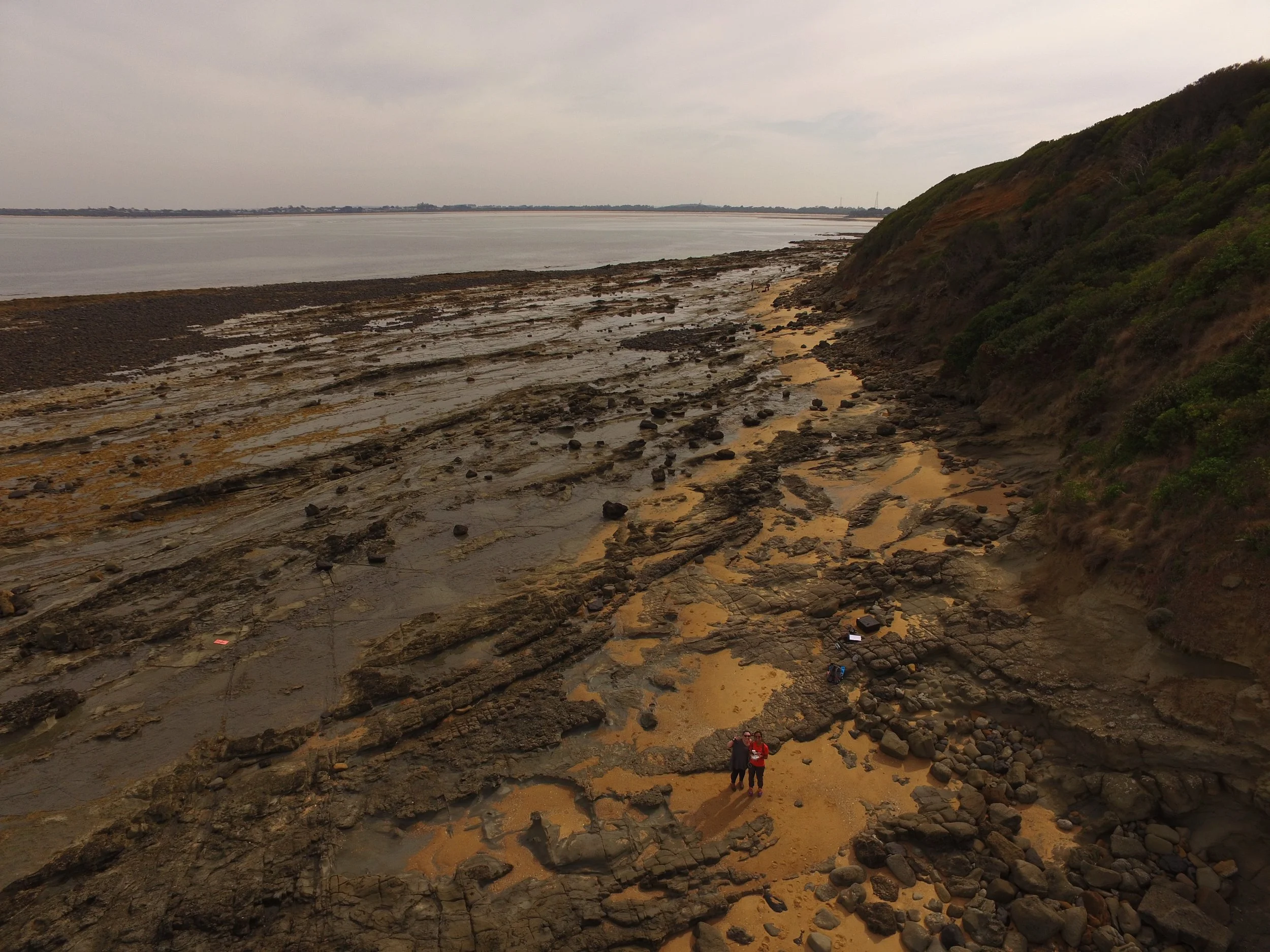
Shannon Herley
Basin Analyst - Geological Survey of Victoria
Bachelor of Environmental Science (Geosciences, Geography & Environmental Science) & Bachelor of Science (Honours, Geosciences)
November 2021
Shannon Herley is a Basin Analyst at the Geological Survey of Victoria (GSV).
The GSV is Victoria’s geoscience agency, responsible for studying and understanding the geology of the state, particularly relating to Earth resources.
Shannon brings her passion and expertise of sedimentary rocks to the Energy Geoscience team. She combines information about sedimentary rocks, including plant fossil data - which tells her how old the rocks are - geophysics, and the chemistry of different sediments to investigate the geology and resource potential of the Otway and Gippsland basins in Victoria, Australia.
Why did you choose this career pathway?
Shannon in the caldera of Hverfjall, a tephra cone volcano which erupted 2500 years ago in Iceland.
When I enrolled in a Bachelor of Environmental Science, I was torn between majoring in meteorology (because of the movie Twister (1996)) or geosciences (because of the movie Dante’s Peak (1997)).
Natural disasters fascinated me. The thought of studying earthquakes and volcanoes won me over.
A career in geoscience can often require you to go where the rocks are (but certainly not always). This can be either a negative or a positive. I like being anchored and staying in one place, so the prospect of moving states or countries unnerved me a little – I am so thankful that I have found a role in my hometown of Melbourne.
Shannon met a local farmer while doing her PhD field work and spent her lunchtime fishing with him. In Marengo, Victoria, Australia.
What are the best parts about your job?
What are the hardest parts?
There are many wonderful things about my job. I work with a fantastic team and collaborate with them regularly. This allows me to learn from my colleagues and develop new skills. In addition to this, each year we are required to meet learning and development targets, further encouraging us to expand our knowledge in the geoscience field.
A difficult aspect of my job is the occasional need to quickly shift my focus to complete high priority tasks that suddenly arise. This is often at the request of my colleagues, team leaders, or external stakeholders. While this is often an opportunity to inject added variety in my role, it can be challenging.
A section of the San Remo Member (part of the Strzelecki Group) which Shannon logged for her PhD studies. It was deposited approximately 120 million years ago by a large river system that ran through a rift valley between Australia and Antarctica when the two continents were still partially joined. In San Remo, Victoria, Australia.
How did you get to your current role?
Back in 2016 I was trying to complete a PhD. It was getting to the end of my candidacy and my scholarship, so I was looking for a job, ideally related to geology, though I was open to anything.
A colleague of mine from uni, happened to post a link to an advert on social media for a basin analyst. I rang the recruitment agency that was in charge of the contract immediately. The job sounded like a dream - it was here in Melbourne, for a government agency, and focussed on the Gippsland and Otway basins (which I was studying at the time).
I’m still in that role now, and while I have not completed my PhD, I wouldn’t change a thing. My experiences at the GSV have been invaluable.
A drone image of the rock platform Shannon was studying. Shannon used drone images to identify large scale structures and sedimentary features in the sandstones and shales. In Inverloch, Victoria, Australia. Photo credit: Anindita Samsu.
How well did your degree prepare you for your career path?
Parts of my degree definitely set me in the right direction for my current role. I apply a lot of basic sedimentology techniques in my work.
But the most valuable part of my university studies were my honours year and PhD studies. Even though my PhD will go unfinished, those years taught me to how research, which is important in my role.
Shannon in front of the basalt columns of the Isle of Staffa, Scotland.
What advice would you give to students in your study area trying to decide on a career path?
I would suggest putting your hand up for any geology related opportunities at uni. Get to know your lecturers, ask them questions, ask them if any postgraduates need field assistants, or if there are any extra credit opportunities. The more you get involved in your classes in undergrad, the more you’ll get a taste of what area of geosciences you enjoy most.
Also, while I don’t believe a PhD is necessary to succeed in this field, completing an honours year is definitely advantageous, and can help solidify the material you’ve learned during your undergrad and how that can be applied in the real world.
Connect with Shannon





